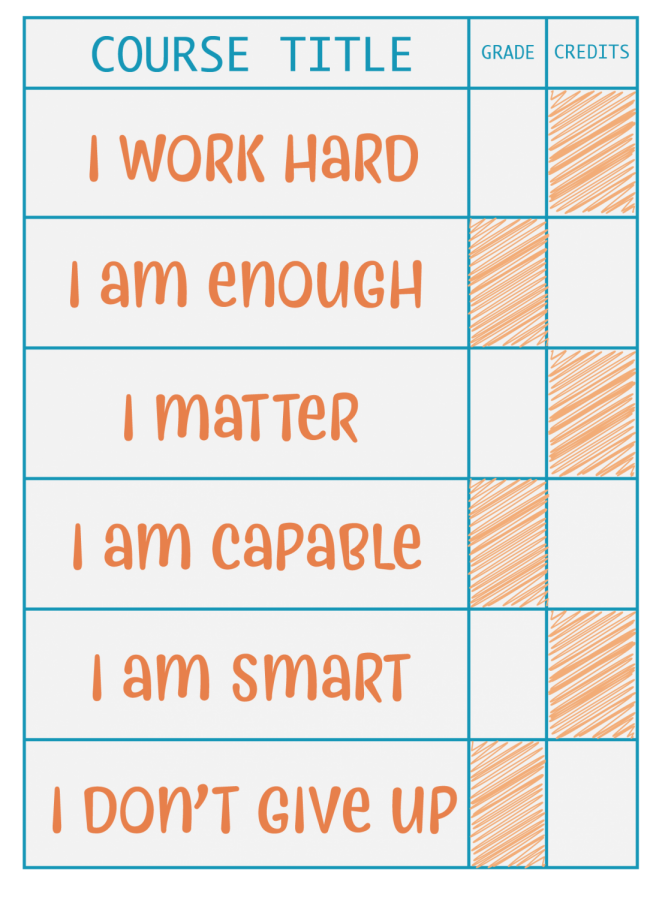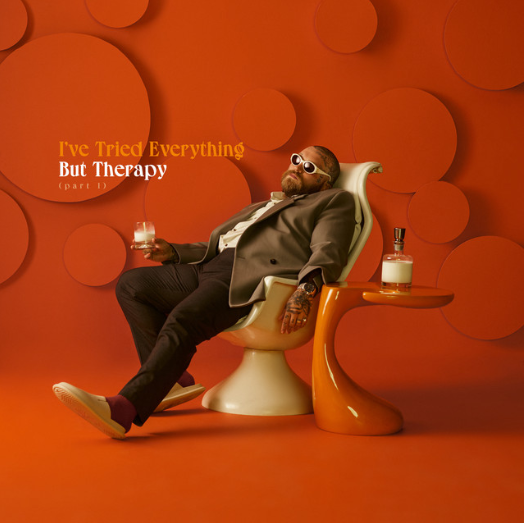Academic Anxiety: Your Grades Do Not Define You
The shaking legs, the rapid heartbeat and the knot in your chest: I can assure you they’re not in your head. Academic anxiety is a term under the umbrella of anxiety experienced by many college students. Anxiety, in general, is the leading mental health concern amongst college students. Approximately 41.6% of students have anxiety, according to the American Psychological Association. This isn’t something you are going through alone. Academic anxiety can be brought on by numerous factors and it’s not always in our control. A study done by Cornell University in 2015 addresses the four components of academic anxiety. The first one is labeled as worry. Worry doesn’t just mean that you feel a sense of uneasiness looming in the back of your head; it’s overwhelming thoughts that can prevent you from completing work, staying focused and exhibiting motivation. These thoughts can consist of anything self-degrading or the consequences of not reaching an academic-related goal. The second component is emotionality. Emotionality is concerned with the physical or biological symptoms that occur when experiencing academic anxiety. This encompasses a quickened heartbeat, muscle tension or sweaty palms. The third component acknowledges task-generated interference. This covers behaviors that are related to the task at hand and have the potential to prevent successful performance. Task-generated interference behaviors can be checking the clock consistently throughout an exam, or repeatedly re-reading a question out of doubt. The last component consists of study skills deficits. These are the problems that could trigger academic anxiety related to study methods such as last-minute cramming or poor note-taking skills. Although these four components emphasize things that may be preventable, a significant amount of it is out of our control. You can have strong note-taking skills or you can study for an exam weeks ahead of time, but sometimes the overbearing feeling can still come and your progress may seem like it’s crumbling. This does not mean you are abnormal. Mental health is not a linear journey with an endpoint of recovery. There are times when you might fall and have to pick yourself up, but you are most certainly not alone and your journey is still valid.
With midterms around the corner, these emotions may seem to be making their way back up, but there are ways to cope.
Create a plan: outline the assignment, essays or exams that you need to have completed and create a schedule that will allow you to have enough time for healthy breaks in between. Now, what is a healthy break? The main component of a healthy break is to take a step away from your work. You can’t continue to work if your brain is already exhausted. This is psychologically proven in a study published by PLOS ONE, a multidisciplinary peer-reviewed journal, to cause burnout which, in turn, can result in physical consequences.
Self-Care: it’s easier said than done, but prioritize yourself, allow yourself to think in a way that emphasizes that you are worth more than your grades or GPA. Don’t use your academic performance as a scale to determine self-worth; you deserve more than that. An aspect of self-care is to find your comfort. Comfort can be found in your friends, family, or hobbies. Comfort looks different for everyone but when you find the thing that brings you peace and ease, it will change you.
Reward: after all is said and done, and you’ve submitted that essay or assignment, or walked out of that test, reward yourself. I don’t mean go back to your desk and work on the next big thing that’s coming up. Celebrate the small victories all the way to the large victories. Regardless of your result, you still checked one thing off that checklist. Celebrate yourself and all that you have achieved.
Now, this isn’t just a call to students but this is a call to faculty as well. Everyone goes into college with uncertainty in their ability to handle their coursework, but as a professor, you have the ability to ease their worries. This doesn’t mean abolish tests and homework, but work with your students rather than against them. Identify the methods that will allow your students to reach their full potential. Push when you need to push but also allow your class to be one that students enjoy, even if it is a required course. Students aren’t learning anything if the only thing they gain from your class is credit at the cost of their mental health. Teaching methods may differ, but take a step back and look at your syllabus—are your students benefiting from your class?
I hope what you’ve gained from this isn’t just what is entailed in academic anxiety, but that you are more than what it makes you feel. Each step is still a step, whether big or small, and you are worthy of recovery. In the midst of all the academic chaos, take a second to acknowledge how far you have already made it, and how far you are going to make it.
Your donation will support the student journalists of Saint Louis University. Your contribution will help us cover our annual website hosting costs.











